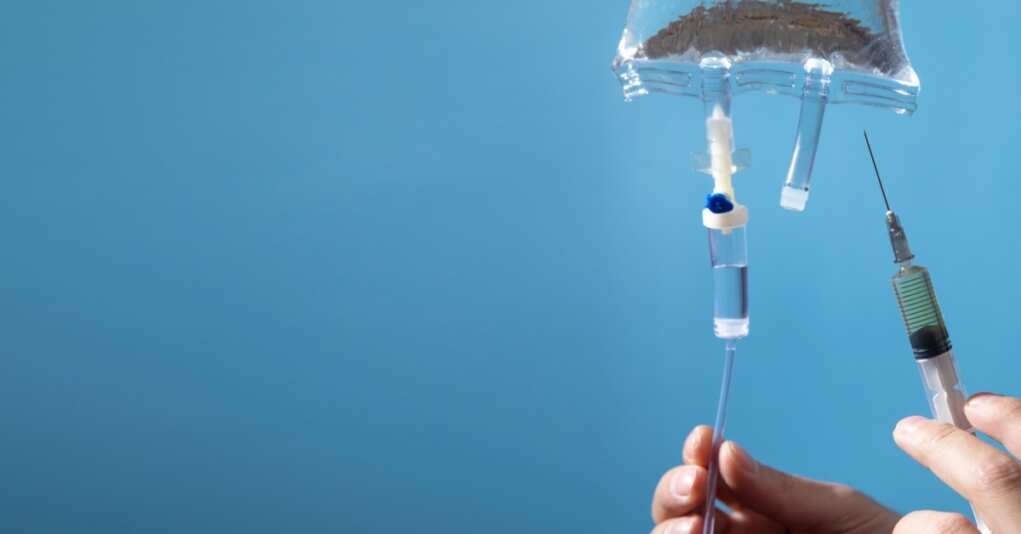Critical Shortage of IV Fluids Hitting Hospitals Hard After Hurricane Ravaged Manufacturing Facilities

Americans scheduled for surgeries might find themselves temporarily out of luck as crucial IV fluid manufacturing companies struggle to rebuild after Helene and Milton.
IV fluids are a staple of medical treatments for everything from nausea to infections, dialysis, and traumatic injuries. Now, hospitals and healthcare facilities are urged to conserve these life-saving fluids in the face of expected shortages. For some illnesses and complaints, healthcare professionals give patients Gatorade to reverse dehydration and try to balance electrolytes without using their supplies of these essential IV fluids.
A Baxter facility in North Carolina, which makes more than half of the country’s IV solutions, had to close after Hurricane Helene. Now, B. Braun, an IV manufacturer based in Florida and the country’s second-largest supplier of IV solutions, is facing the same crisis after Milton tore through the state.
A survey done earlier this week by Premier, Inc. found that 86% of U.S. healthcare providers are facing shortages of IV solutions. Smaller healthcare facilities with fewer than 25 beds are the most likely to be affected. According to the survey, about half of providers and facilities have ten days or less of fluid supplies, down from an average of 15 to 22 days.
Braun closed its Daytona Beach facility on Wednesday before Hurricane Milton hit. Company officials hope to reopen by Friday and increase production. Workers spent Tuesday loading IV bags onto trucks to move them to a safe location away from the hurricane’s path, according to Alli Longenhagen, the director of corporate communications for B. Braun. The company is also boosting production at its plant in Irvine, California.
Hospitals across the country are keeping a close eye on the situation. In an internal email, Mass General Brigham warned its employees that it received only 40% of its usual IV supply from Baxter. Meanwhile, the Florida Hospital Association is sending regular updates to member hospitals. At Keck Medicine of USC in Los Angeles, officials say they have enough supplies but are taking steps to conserve them because the situation is changing quickly. Cleveland hospitals also reported that all patients needing IVs were receiving them and that medical procedures continued, but they are closely monitoring the situation.
Some hospitals, like Alina Health in Minnesota, are temporarily rescheduling non-emergency procedures. The Premier survey found that 17% of hospitals have suspended elective procedures, with more expected to do so if supplies do not improve in the next month.
In Philadelphia, Main Line Health hospitals give less critically ill patients electrolyte drinks instead of IV fluids. Other hospitals in the city are conserving their supplies by providing some medications orally rather than through IV drips.
The U.S. has previously experienced medical supply chain disruptions due to natural disasters. In July 2023, a tornado damaged a Pfizer plant in North Carolina that produced a quarter of the nation’s sterile injectable drugs, but production resumed about ten weeks later. In 2017, Hurricane Maria knocked out three Baxter IV-bag plants in Puerto Rico, leading to hospital shortages, temporary rationing, and some resellers marking up IV bag prices by 600%.
Given these issues, the American Society of Health-System Pharmacists has recommended ways for hospitals, clinics, and dialysis providers to conserve fluids. Suggestions include not “pre-spiking” IV bags before surgery in case they are needed, using smaller volume bags when possible, and leaving IV bags hanging longer, as long as infection control measures are in place.
Federal health officials have authorized hospitals to import some common IV fluids to fill the shortage. Meanwhile, Baxter provided an update on Wednesday, saying they plan to restart their North Cove plant by the end of the year and hope to restore normal supply levels sooner by importing products from their other facilities, including some from overseas. Officials say that the plant didn’t suffer structural damage, and they are currently working on building a temporary bridge to replace one that was washed away by flood waters.
For now, hospitals are encouraged to monitor supplies and prioritize their use. Many facilities will be forced to delay elective surgeries to use their IV supplies for more serious illnesses and surgeries. Still, manufacturers remain optimistic that they can restore their operations quickly with minimal effects on healthcare providers and patients.

